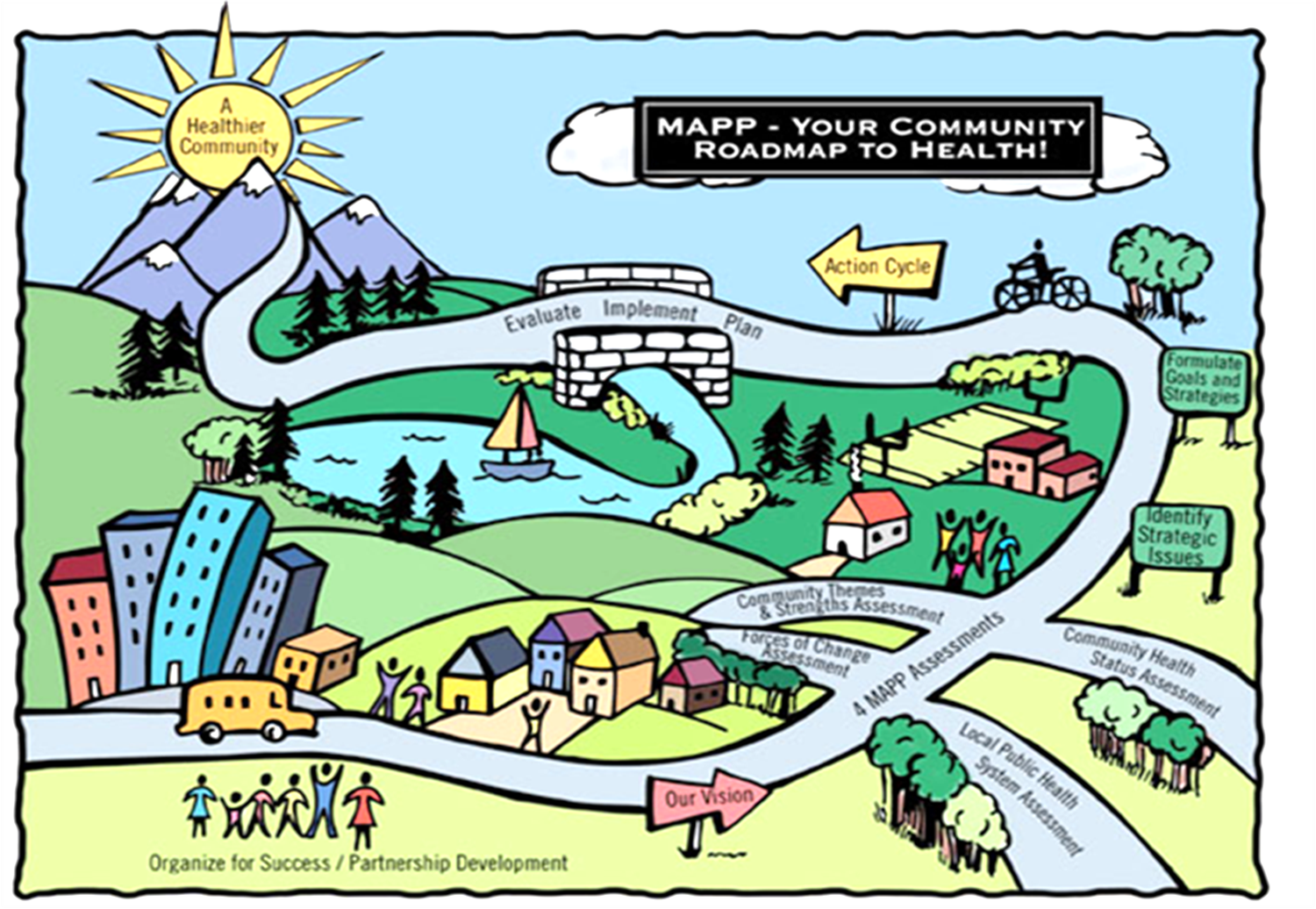After finishing the extensive assessment work on the neighborhood and citywide levels in the spring and holding two community planning meetings in the fall, BACH and its members have identified five strategic issues, with corresponding goals, and a list of strategies to move forward with our citywide effort. BACH asked our partner organizations to share the work they are currently doing around these issues. We compiled an inventory of these strategies as a way to jump start our conversation in November. Below is a list of our five strategic issues and examples of strategies implemented by Boston organizations.
Strategic Issue #1: How can we achieve racial and ethnic health equity? The Jamaica Plain Tree of Life/Arbol de Vida Coalition (whose coordinator, Margaret Noce is a member of BACH’s Health Planning and Improvment Committee) has been engaging in work to address health equity and racial justice in Jamaica Plain and Egleston Square. The coalition continues to educate providers and residents about the impact of social determinants and racism on health. Through this education, the coalition has made agreements to have all health and human service providers serving Jamaica Plain/Egleston Square adopt a health equity and racial justice framework around practices of hiring, services and policy decisions. The coalition partners with the JP Health Equity Committee, which includes Brookside Community Health Center, Southern Jamaica Plain Health Center, Martha Eliot Health Center, JP Neighborhood Development Corporation, and many other partners to work toward achieving racial and ethnic health equity.
Strategic Issue #2: How can we improve coordination and integration of healthcare and community-based prevention services and activities?
Boston Children’s Hospital’s (whose Director of Community Partnerships, John Riordan, is a member of the Jamaica Plain Tree of Life Coalition) community health programs in the areas of asthma, child development, obesity and mental health cover the full continuum of care: prevention, evaluation, treatment, parental support, case management, training and education, and policy advocacy. This range of services aims to integrate healthcare and prevention at the community level. One specific example of BCH’s work on this strategic issue is its creation of a replicable Campus of Care (focused on preschool to middle School) at the Bromley Heath Boston Housing Authority campus. Partners include BHA, BPS, Associated Early Learning and Education, Smart from the Start, South Street Initiative and BHA Bromley Heath Management and Tenant Task Force, among others.
Strategic Issue #3: How can we build and increase resilience in communities impacted by trauma?
In response to community health issues of substance use and mental illness, South Boston Collaborative Advisory Network (CAN) works to increase community resilience in South Boston by supporting Trauma Response Teams that respond to community events of trauma. Partners in this work include Children’s Trauma Foundation and Louis D. Brown Peace Project, among others. South Boston CAN is eager to engage in additional strategies to build and increase community resilience. “The multiple traumas people experience are unbelievable,” Kay Walsh, CAN Project Director (and member of BACH’s Steering Committee), said. “We need more advanced training open to both professionals and families-it’s critical for our resiliency.”
Strategic Issue #4: How can we improve health outcomes by focusing on education, employment, and transportation policies and practices?
The Boston Public Health Commission (whose Director of Policy and Planning, Pam Jones is a member of BACH’s Steering Committee) convenes a Health in All Policies Task Force, which provides a venue for city agencies and departments and community organizations to advance multiple goals in order to support a healthier and more sustainable Boston. Health in All Policies harnesses the power that City agencies and departments and community organizations can bring through their varied areas of expertise and experience, focuses on strategies for collective impact, and explores and uses health as a linking factor to bring people together from across sectors to address some of the biggest issues that our society faces. The Task Force has engaged in several health impact assessments to create healthier built environments in Boston, and looks forward to integrating health into decision-making related to education, employment, transportation, and other policies and programs.
Strategic Issue #5: How can we increase the number of immigrants, people of color, and other under-represented populations in leadership roles and decision-making processes?
Over the past few years, Nuestra Comunidad Development Corporation (whose Director, David Price, is a member of the BACH Steering Committee) has engaged in MISSION 180, Nuestra’s place-based organizing initiative. MISSION 180 builds on the strengths of Nuestra’s organization and the people it serves, its ability to implement organizing strategies, and its experience with community building activities in an effort to define and tackle the challenges facing the Warren Street corridor of Roxbury and North Dorchester. Nuestra currently advances the work of this strategic issue through the MISSION 180 community action coalition, which has employed culturally competent organizers and best practices to reach and engage Latinos, Haitians and Somalians in Roxbury and Grove Hall in a planning process engaging over 200 residents and stakeholders. MISSION 180 organizing partners include: Madison Park Development Corporation, Teen Empowerment, and Project RIGHT, to name a few.
By understanding the current efforts throughout the city, BACH can ensure our strategies and action plans are aligned. The process also gave everyone a chance to see the bigger picture – that we have shared goals and there is value in the process. We have identified “champions” for each issue and, with staff support, they will convene small working groups during the next months with the goal of having an Action Plan by Spring, 2014.
If you are interested in being part of one of the working groups, please contact Allyson Auerbach at aauerbach@hria.org.


